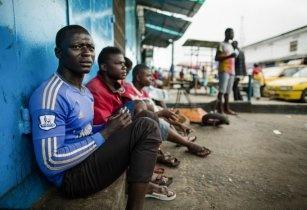The growing COVID-19 crisis threatens to disproportionately hit developing countries, as a health crisis in the short term and as a devastating social and economic crisis over the months and years to come
Income losses are expected to exceed US$220bn in developing countries. With an estimated 55 per cent of the global population having no access to social protection, these losses will reverberate across societies, impacting education, human rights and, in the most severe cases, basic food security and nutrition.
Under-resourced hospitals and fragile health systems are likely to be overwhelmed. This may be further exacerbated by a spike in cases, as up to 75 per cent of people in least developed countries lack access to soap and water.
Additional social conditions, such as poor urban planning and overpopulation in some cities, weak waste disposal services, and even traffic congestion impeding access to healthcare facilities, may all add to the caseload.
“This pandemic is a health crisis. But not just a health crisis. For vast swathes of the globe, the pandemic will leave deep, deep scars,” noted Achim Steiner, administrator of the United Nations Development Programme (UNDP). “Without support from the international community, we risk a massive reversal of gains made over the last two decades, and an entire generation lost, if not in lives then in rights, opportunities and dignity.”
Call to action
UNDP has made a call to action to the international community to think beyond the immediate impact of COVID-19. The organisation has emphasised the need for three priority actions: resources to help stop the spread of the virus, support to respond during the outbreak itself, and resources to prevent the economic collapse of developing countries.
As an immediate response, UNDP is building on the support it has been providing to China and other Asian countries to help strengthen their health systems. This includes helping them procure much-needed medical supplies, leverage digital technologies and ensuring health workers are paid.
UNDP will support countries to slow the spread of the virus and to provide social protection for vulnerable populations, promoting a whole-of-government and whole-of-society response to complement efforts in the health sector.
In the longer term, UNDP will work with countries to assess the social and economic impacts of COVID-19 and take urgent recovery measures to minimise long-term impact, particularly for vulnerable and marginalised groups, and to help societies to recover better.





















